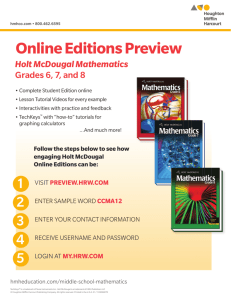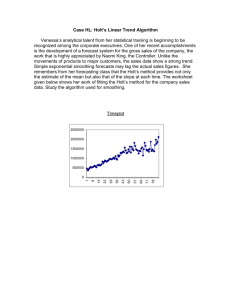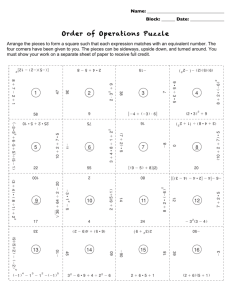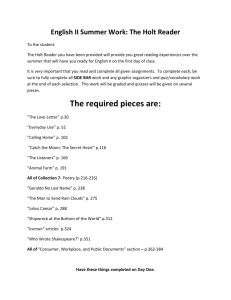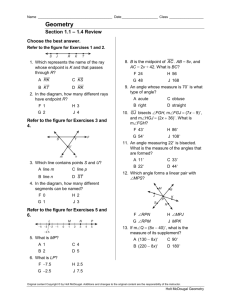Practice B - Militant Grammarian
advertisement
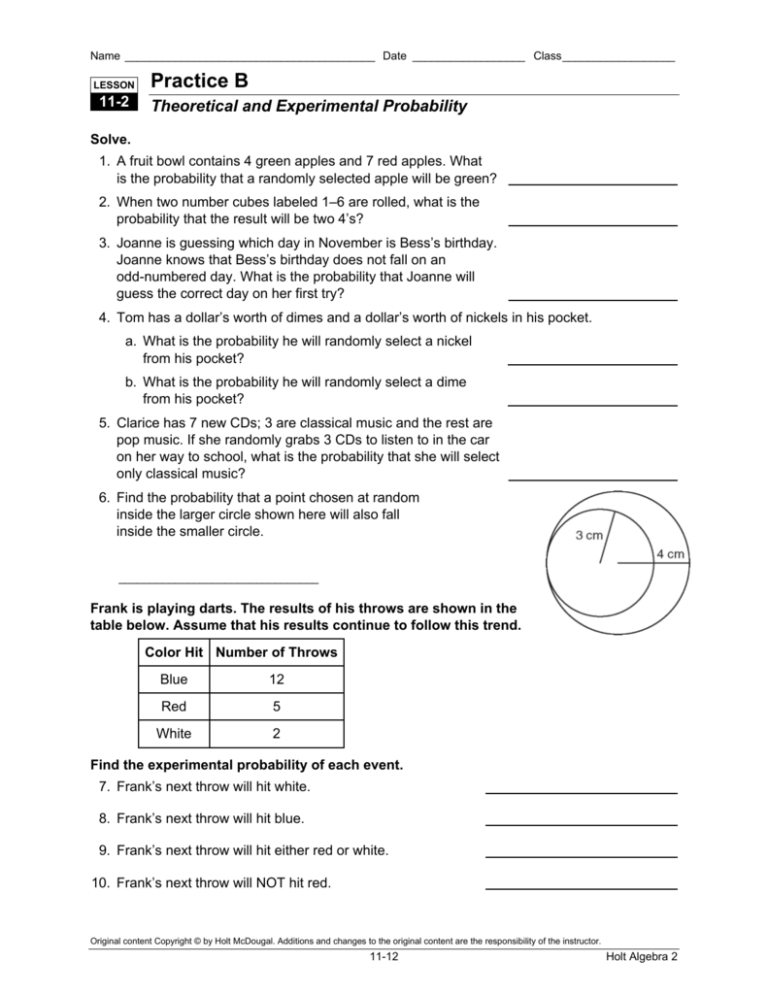
Name ________________________________________ Date __________________ Class__________________ LESSON 11-2 Practice B Theoretical and Experimental Probability Solve. 1. A fruit bowl contains 4 green apples and 7 red apples. What is the probability that a randomly selected apple will be green? 2. When two number cubes labeled 1–6 are rolled, what is the probability that the result will be two 4’s? 3. Joanne is guessing which day in November is Bess’s birthday. Joanne knows that Bess’s birthday does not fall on an odd-numbered day. What is the probability that Joanne will guess the correct day on her first try? 4. Tom has a dollar’s worth of dimes and a dollar’s worth of nickels in his pocket. a. What is the probability he will randomly select a nickel from his pocket? b. What is the probability he will randomly select a dime from his pocket? 5. Clarice has 7 new CDs; 3 are classical music and the rest are pop music. If she randomly grabs 3 CDs to listen to in the car on her way to school, what is the probability that she will select only classical music? 6. Find the probability that a point chosen at random inside the larger circle shown here will also fall inside the smaller circle. ________________________________ Frank is playing darts. The results of his throws are shown in the table below. Assume that his results continue to follow this trend. Color Hit Number of Throws Blue 12 Red 5 White 2 Find the experimental probability of each event. 7. Frank’s next throw will hit white. 8. Frank’s next throw will hit blue. 9. Frank’s next throw will hit either red or white. 10. Frank’s next throw will NOT hit red. Original content Copyright © by Holt McDougal. Additions and changes to the original content are the responsibility of the instructor. 11-12 Holt Algebra 2 4. 1 100,000 1. 36 outcomes 5. 2. The sample space is blue, red, green, yellow. 1 30,240 7. LESSON 11-2 Practice A 3. Certain 4. Impossible 5. 4 7 6. 1 3 7. 7 10 8. 1 9 9. 53 100 10. 47 11. 100 4 11 3. 1 15 b. 83 100 b. 1 18 1 12 3. a. (6, 3), (5, 4), (4, 5), (3, 6) b. 1 36 1 9 4. a. 55 b. 8 55 5. a. 32 b. 1 3 b. 32 55 6. a. 25 5 11 5. 1 35 6. 9 16 b. 7. 2 19 8. 12 19 Challenge 7 9. 19 1. a. Possible answer: 14 10. 19 15 26 3. a. c 18.85 square units 2. 1 4 d. Increase the number of random points in a simulation. Repeat the simulations a number of times and take the average of the results. 1 2 b. 111 176 c. 23 176 17 = 0.68 25 b. Possible answer: 16.32 square units Practice C 1. π 12 2. a. (3, 1), (2, 2), (1, 3) 12. Yellow 2. 8. 1 − 1. a. (2, 1), (1, 2) 2 3 4. a. π 12 Reteach Practice B 1. 6. 0 2. The area derived from the simulation will vary but should be close to 50.24 square units. 3. The area derived from the simulation will vary but should be close to 62.8 square units Original content Copyright © by Holt McDougal. Additions and changes to the original content are the responsibility of the instructor. A37 Holt Algebra 2
